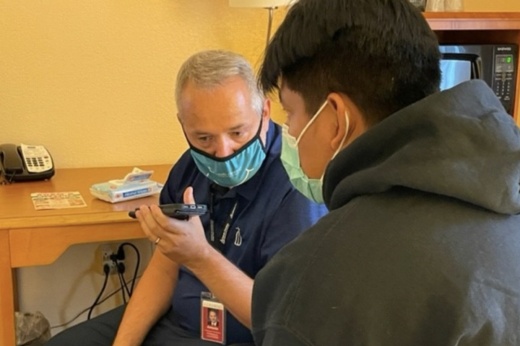San Antonio City Council voted March 9 to allow the city to ask the federal government for $6.54 million to reimburse costs related to aiding migrants traveling through the community.
The city's Human Services Director Melody Woosley said the city seeks reimbursement through the National Board of the Emergency Food and Shelter Program's Shelter and Services Program.
Throughout 2022, the city spent $10.7 million on overseeing local agencies and organizations providing a variety of services to migrants who traversed San Antonio, according to city staff.
In June 2022, the council authorized the city to seek reimbursement from EFSP for a maximum amount of $12.7 million for migrant service-related expenses that would be incurred all of 2022. But to date, the city has been reimbursed $1.55 million, local leaders said.
On Dec. 15, 2022, the council authorized the city to seek out reimbursement for a maximum of $3.03 in expenses that the city would incur between Jan. 1 and March 31, 2023. Local officials said the city did receive $2 million in reimbursement funds covering expenses for the first two months of this year.
“We are constantly pushing for reimbursement,” City Manager Erik Walsh said.
It has been nine months since the city opened a Migrant Resource Center on San Pedro Avenue, south of North Star Mall, to help take in many of the migrants who have been passing through San Antonio.
Local officials said the city has served more than 380,000 asylum seekers since January 2021, but that migrant arrivals decreased 71% in January 2023 over the previous month. City staff attributed the drastic drop in arrivals to a number of immigration policy changes that the federal government made regarding asylum seekers from specific countries.
Local leaders said they plan to keep the Migrant Resource Center open through May. This is about the same time U.S. President Joe Biden’s administration is expected to end Title 42, a policy that has allowed the federal government to use the COVID-19 public health emergency declaration as a means to quickly expel asylum-seekers trying to cross the U.S.-Mexico border.





